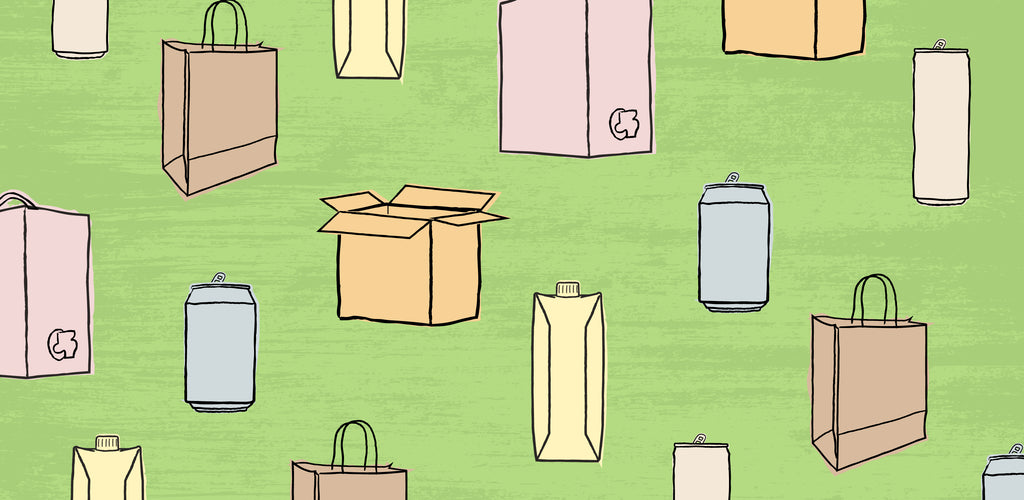What's Next in Eco-Friendly Packages and Practices

Demand for eco-friendly packaging is on the rise, leading companies like Diageo to aim for 100% recyclable or reusable packages. But how are other brands answering the call for more sustainable practices?
From vineyard upgrades to shifts in labeling, here's the scoop on what's happening sustainability-wise throughout the wine, spirit, and beer industries.
New types of packaging
You may notice a shift in how your favourite wine, beer, and spirits are packaged for shipping and retail sale. Some liquor brands are shifting to recyclable bottles, replacing plastic caps with aluminum. Others are trying to avoid bottles altogether, recognizing that hefty glass vessels leave a sizable carbon footprint once they're shuffled across the country.
Cans or "cottles" (cans shaped like bottles) are lightweight and recyclable — two big benefits for environmentally aware producers. Tetra Paks® are gaining in popularity, too. These containers are made from plant-based materials and can usually be recycled into another round of plant-based containers once you've enjoyed the beverage inside.
Bags and boxes offer a slew of benefits as well. The cardboard used for boxes is a great alternative to plastic and heavy glass, but some critics take issue with the small bits of plastic used to line the box and create the pour spout or spigot. Large wine-filled bladders can be used for low-carbon transport and commercial/restaurant dispensing, but again, there's still plenty of plastic involved.
How wineries are tweaking their carbon footprints
In their effort to achieve carbon neutrality — a state in which wine production equals a zero net release of carbon dioxide into the atmosphere — many wineries are looking for ways to manufacture bottles closer to home.
Fetzer Vineyards, long known as an environmentally friendly producer, has gone the extra mile by using renewable energy, diverting 98% of waste away from landfills, and supporting emission reduction projects like reforestation efforts in North America to offset carbon emissions they weren't able to eliminate altogether.
Relying on low intervention vinification is another way to emphasize sustainability. Resisting the urge to rely on pesticides and avoiding the use of gas and diesel-fueled pumps for irrigation are just two ways vineyards can be more hands-off and eco-friendlier at the same time.
Understanding eco-influenced label terminology
There are two major label designations that can help consumers understand which producers are more committed to sustainability.
Napa Green offers two separate certifications, one for vineyards and one for wineries. The vineyard program offers a pathway for growers to work toward core goals like tree and forest preservation and carbon farming. Napa Green Wineries must implement more than 120 sustainability and stewardship standards related to not only environmentally friendly practices but also value-based goals like social equity.
Demeter is an organization focused on biodynamics. Producers who opt into Demeter certification and pass a rigorous inspection and review process are allowed to use the Demeter seal on their products, indicating they're committed to biodynamic agriculture.
For more information on sustainable wines, check our guide to biodynamic, organic, and natural bottles.




